Abstract
Substantial research indicates that tangible rewards, such as money, prizes, and tokens, decrease response rates by undermining intrinsic motivation. In contrast, praise appears to increase response rates by enhancing intrinsic motivation. Based on their interpretation of available evidence, many social-cognitive researchers warn not to use tangible rewards in applied settings and to use praise instead. Furthermore, they suggest that the differential effects of the two types of rewards on intrinsic motivation cannot be explained using principles of operant psychology. Cognitive evaluation theory provides one of the most recent and widely cited social-cognitive explanations for the different effects of the two types of rewards on intrinsic motivation (Deci & Ryan, 1985). However, a review of existing research found little support for the explanations based on this theory and revealed three potential confounding effects: (a) temporal contiguity, (b) the number of reward administrations, and (c) discriminative stimuli associated with reward availability. These three confounding factors provide explanations for the effects of tangible rewards and praise on intrinsic motivation that are consistent with principles of operant psychology.
Keywords: intrinsic motivation, tangible rewards, praise
Full text
PDF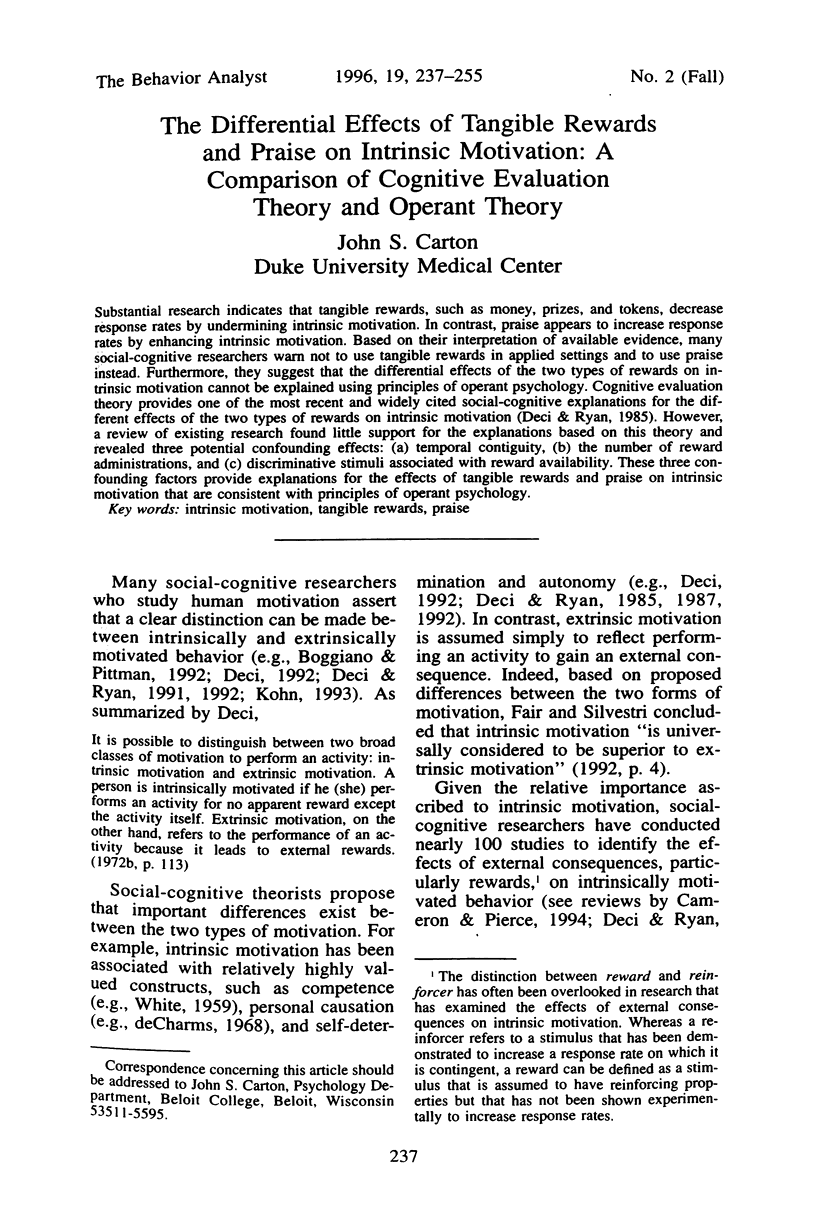
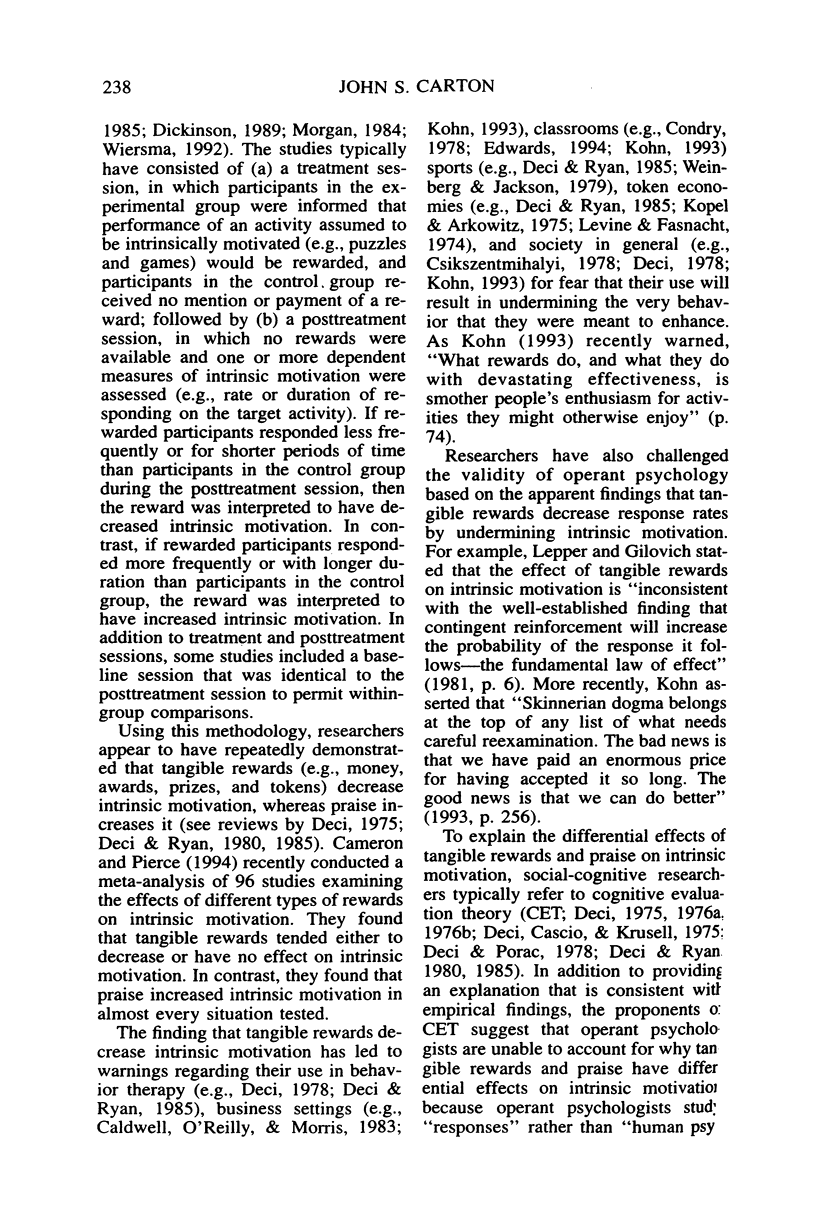
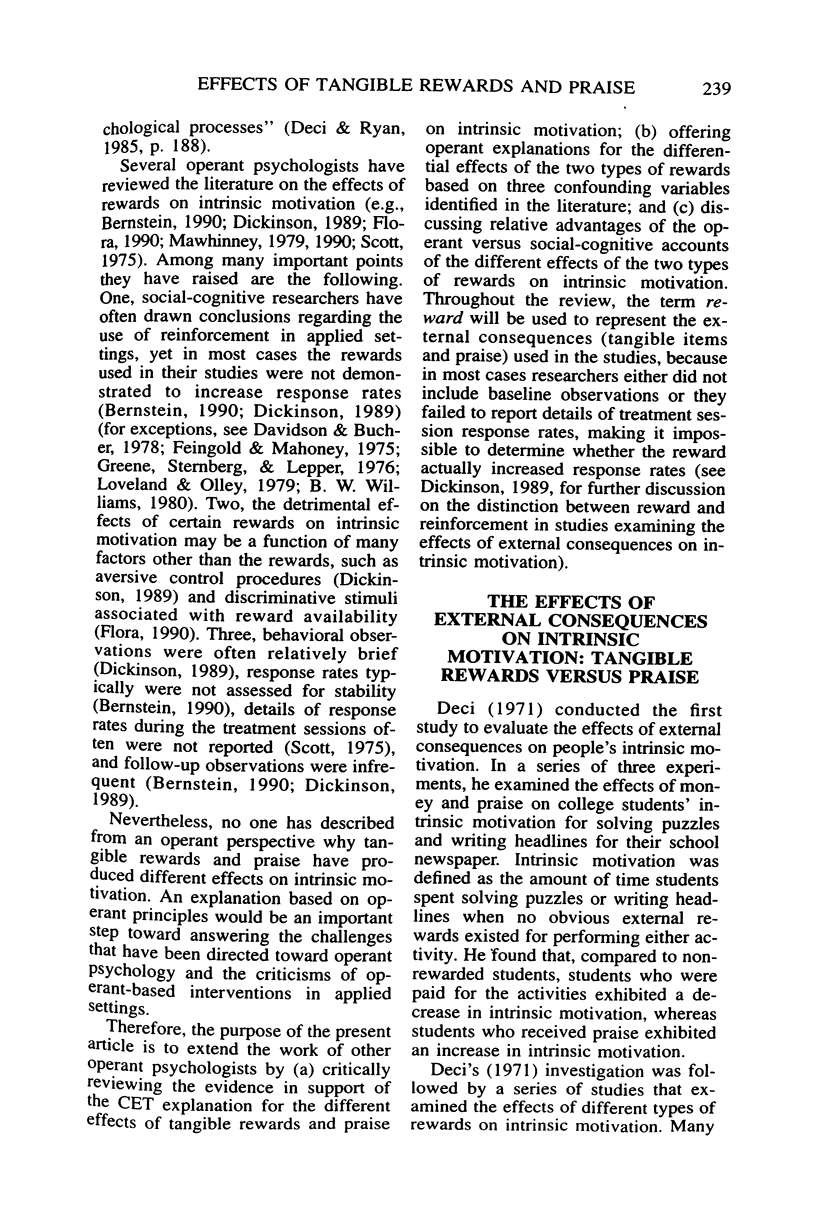
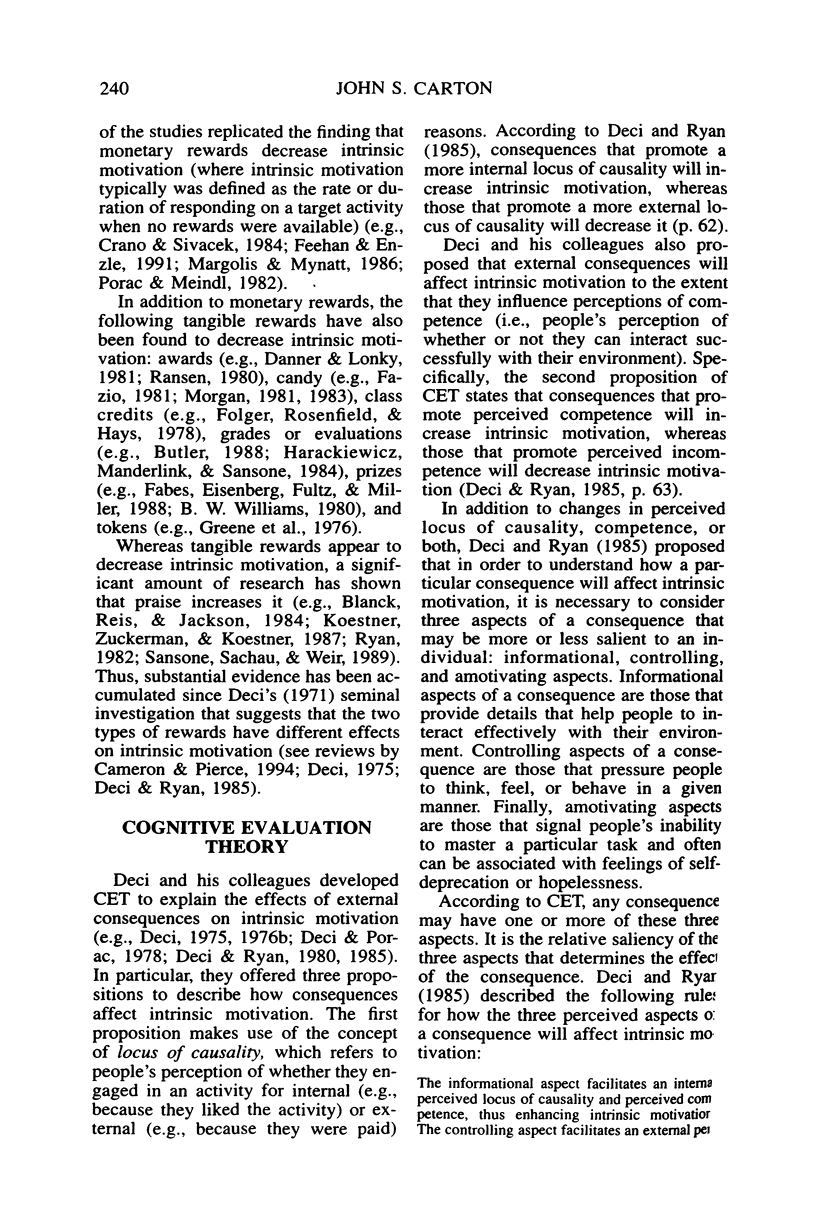
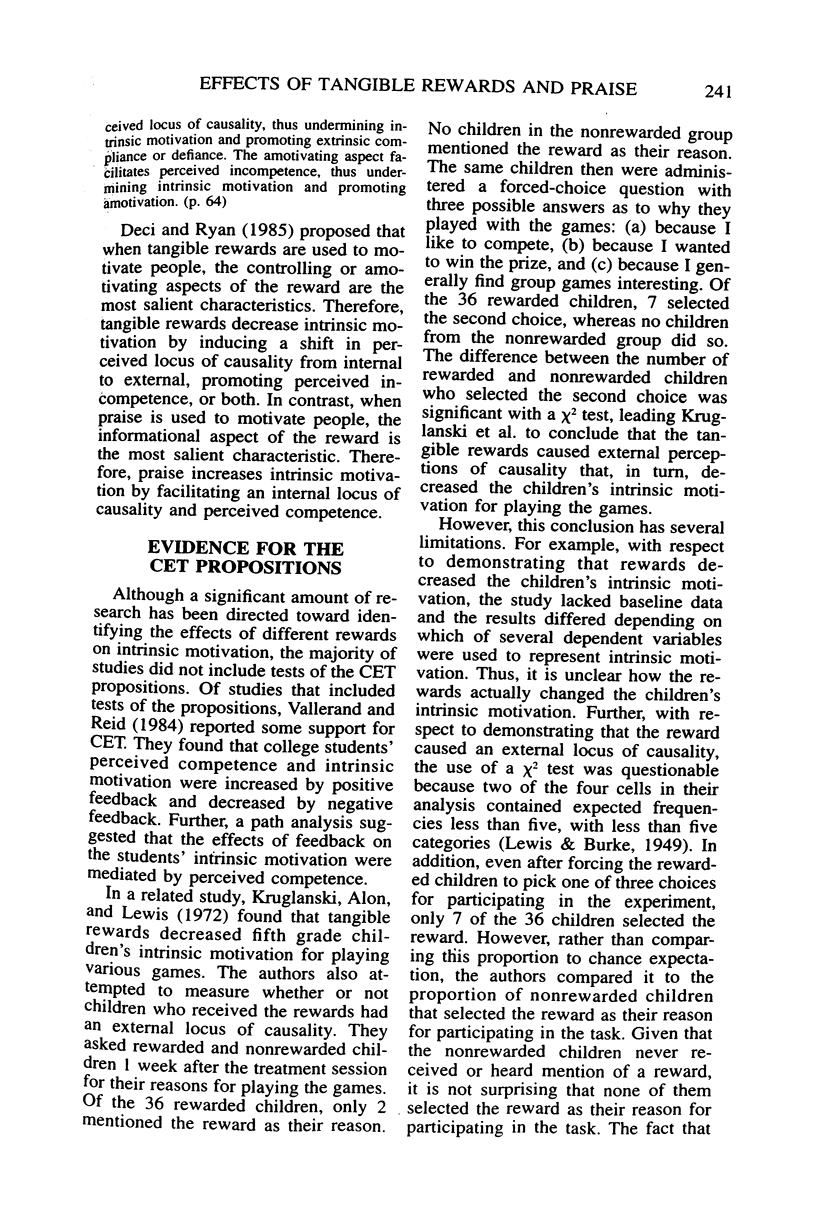
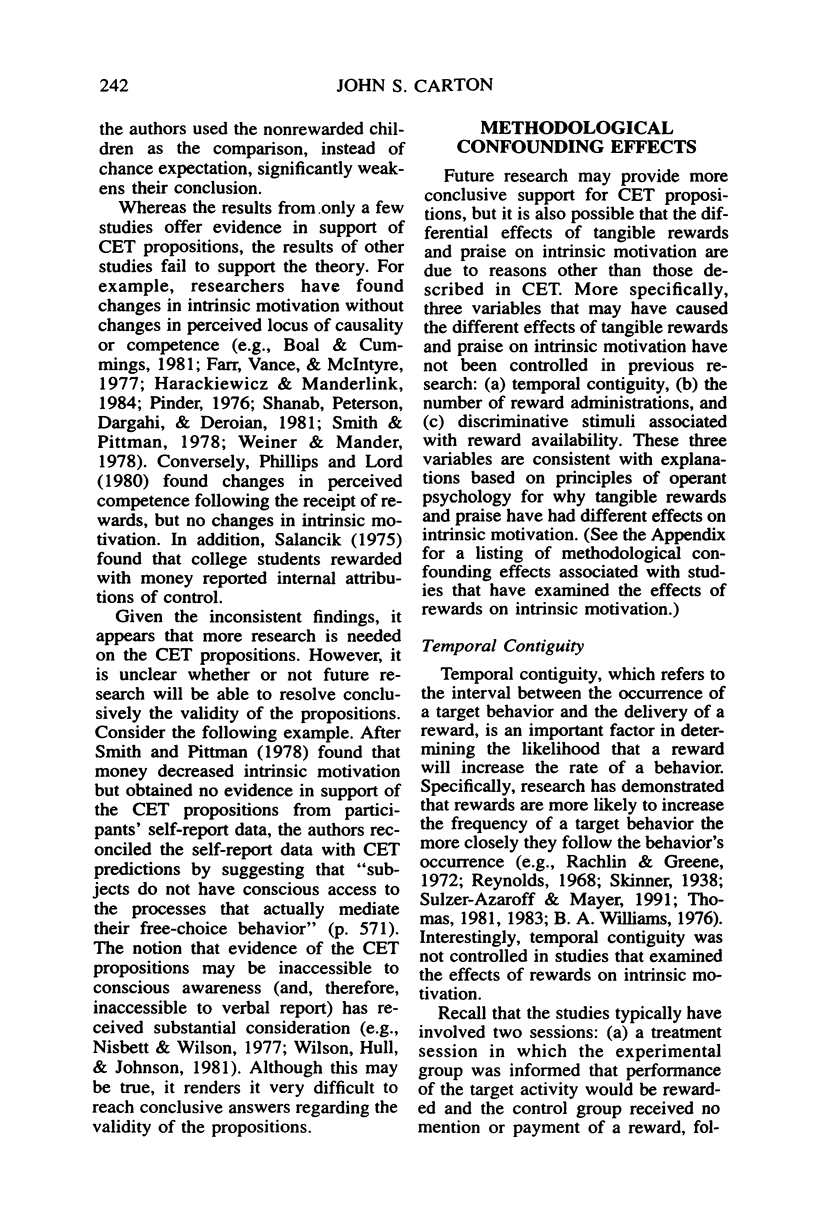
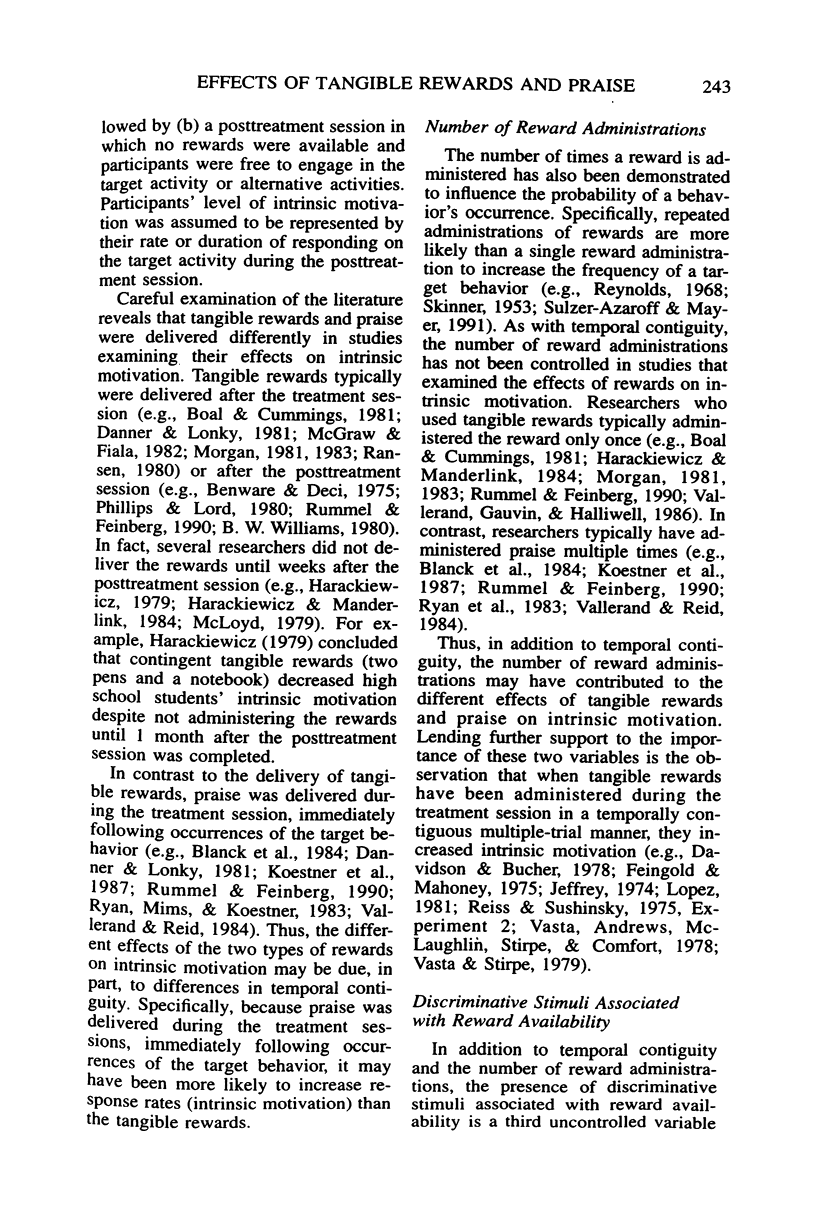
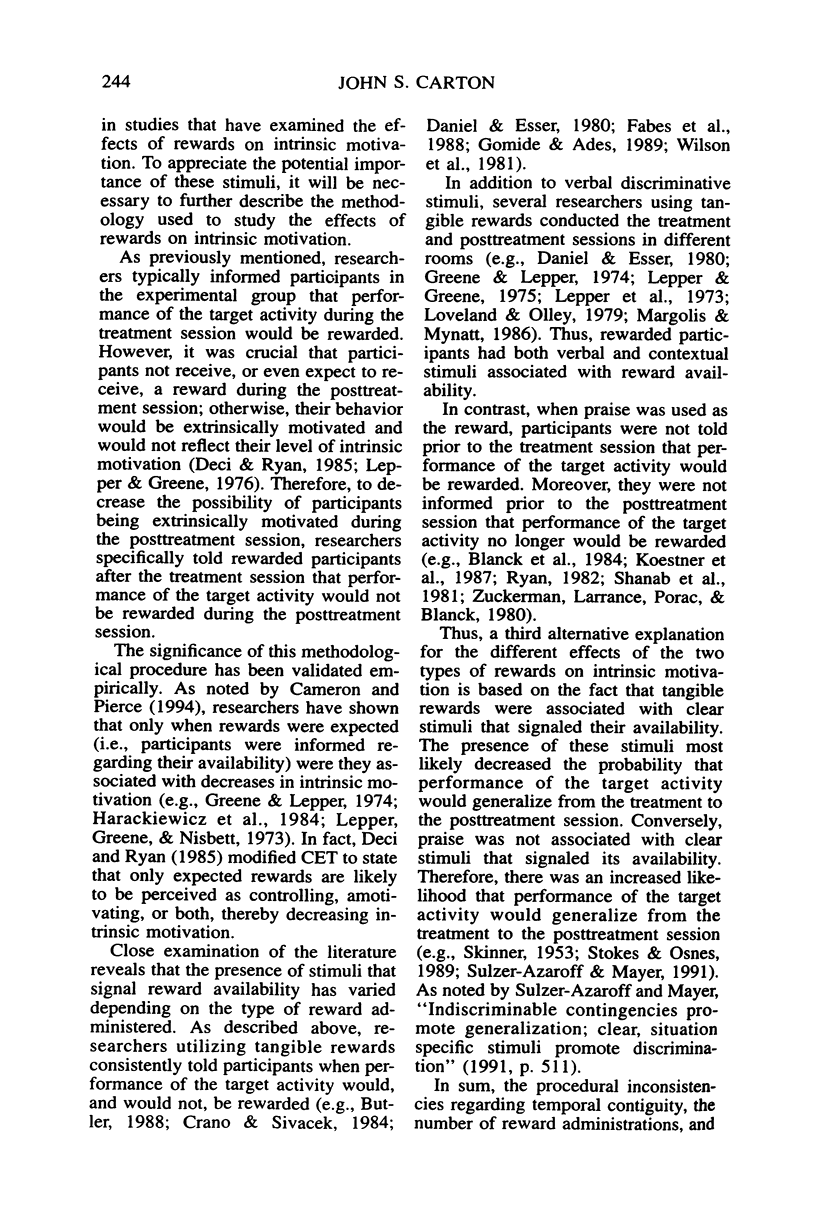
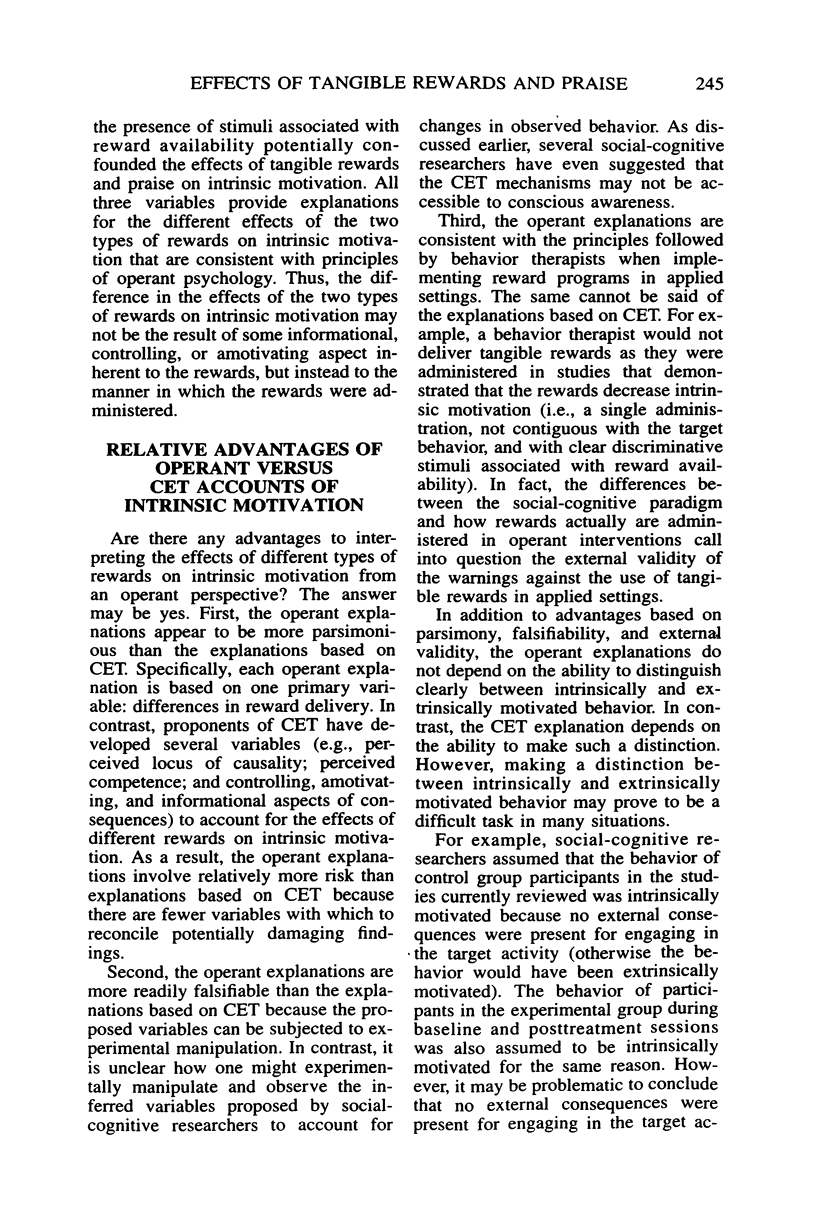
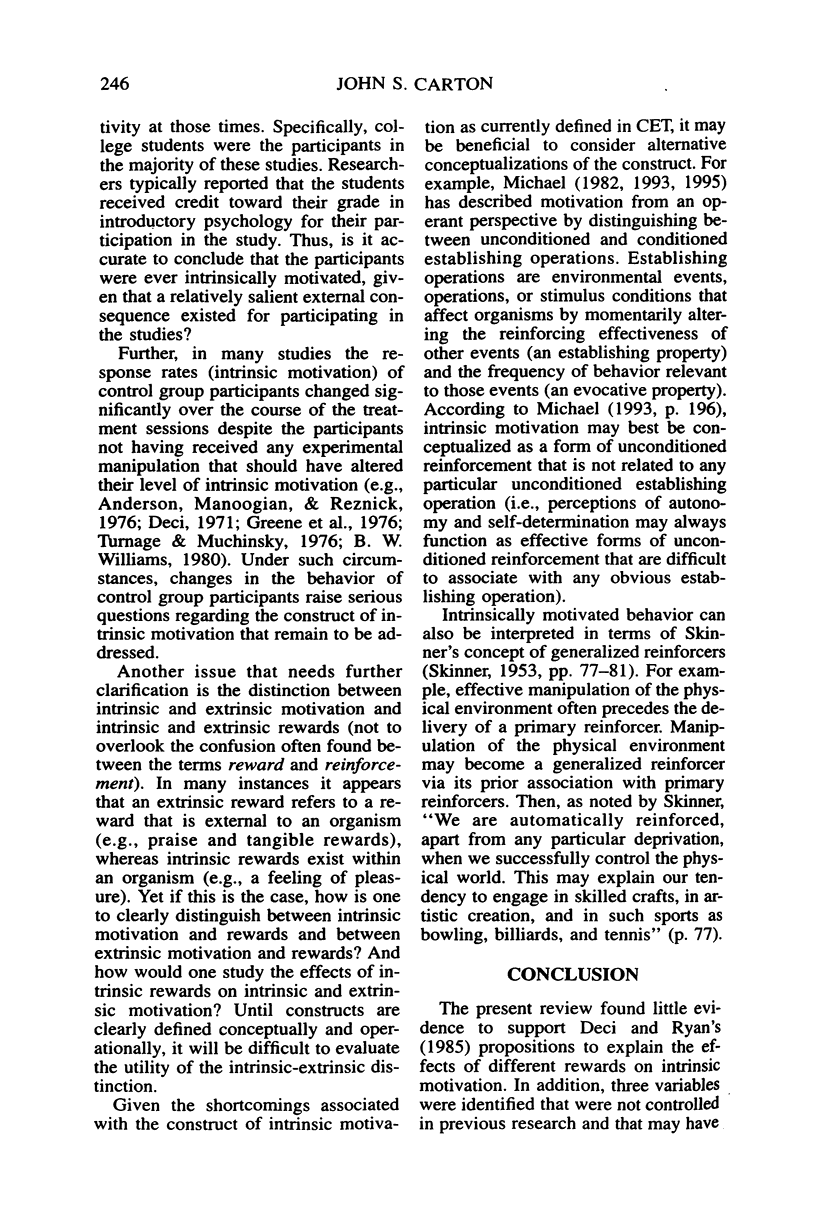
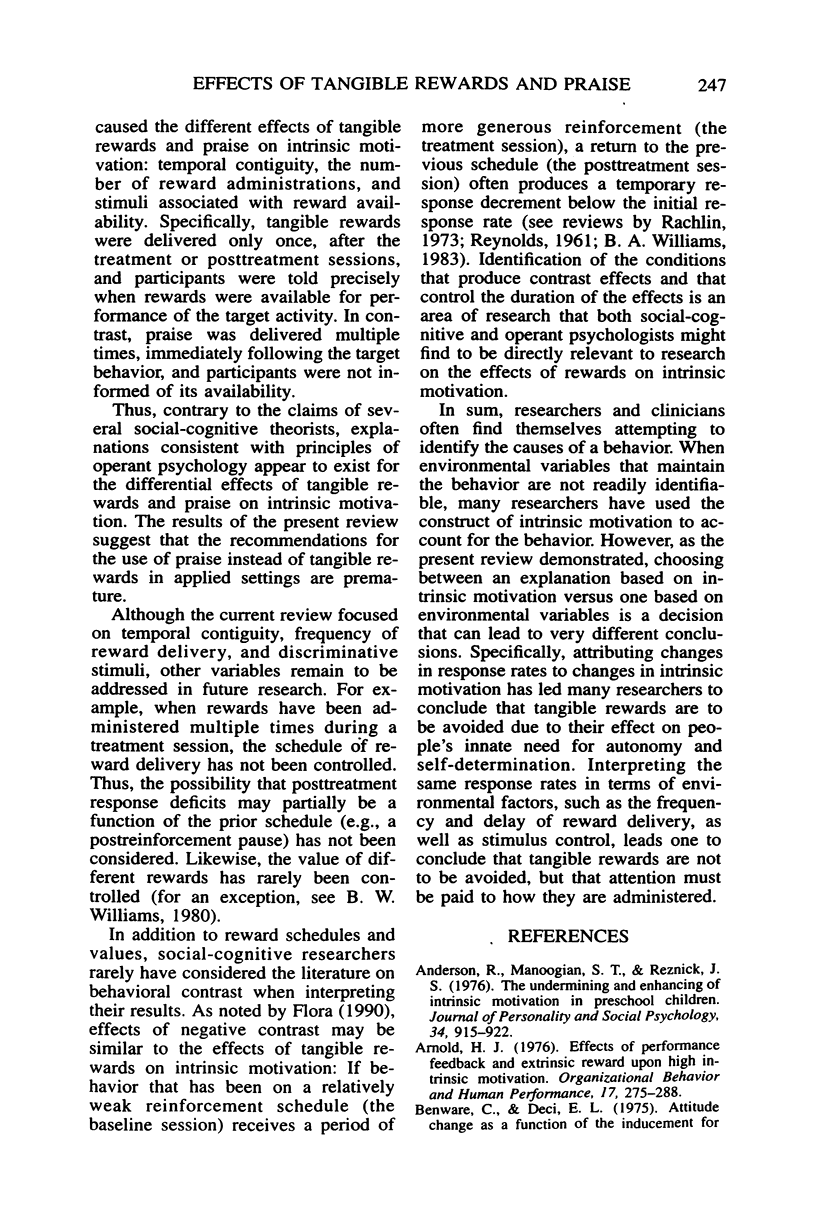
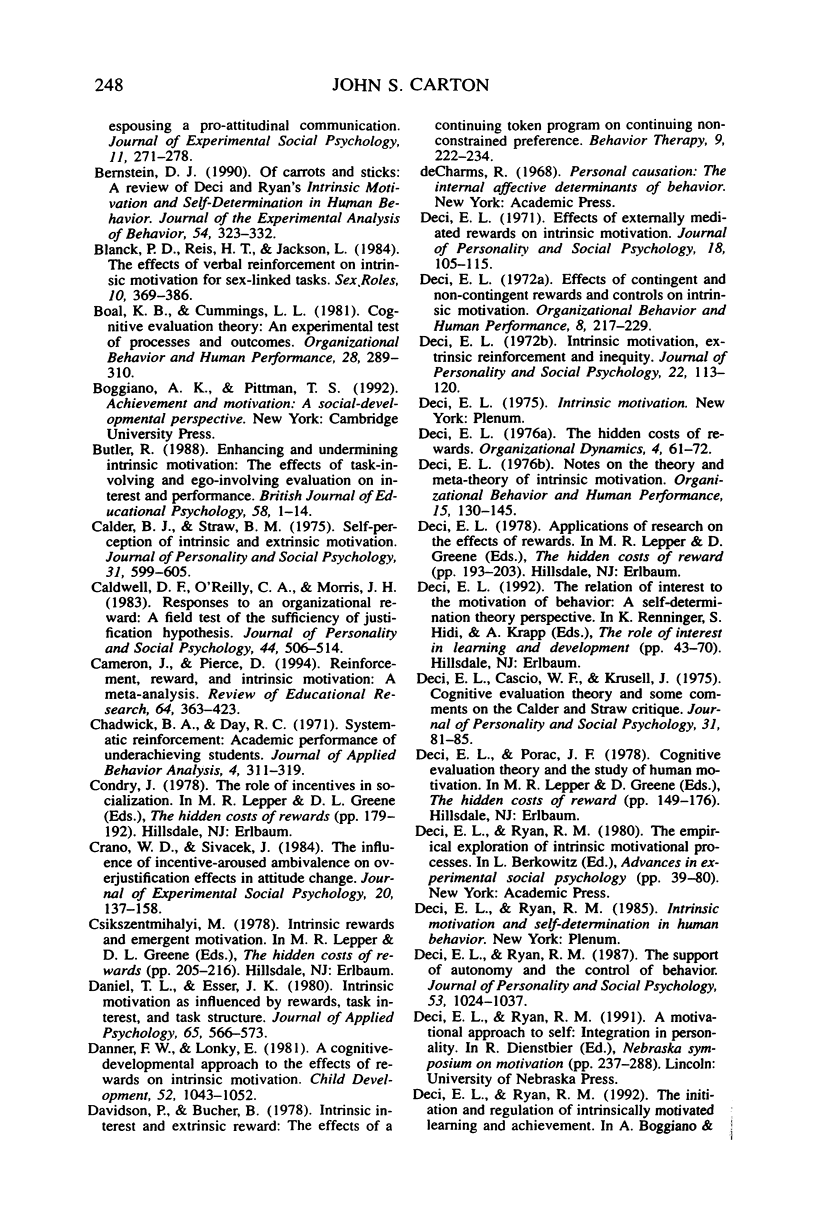
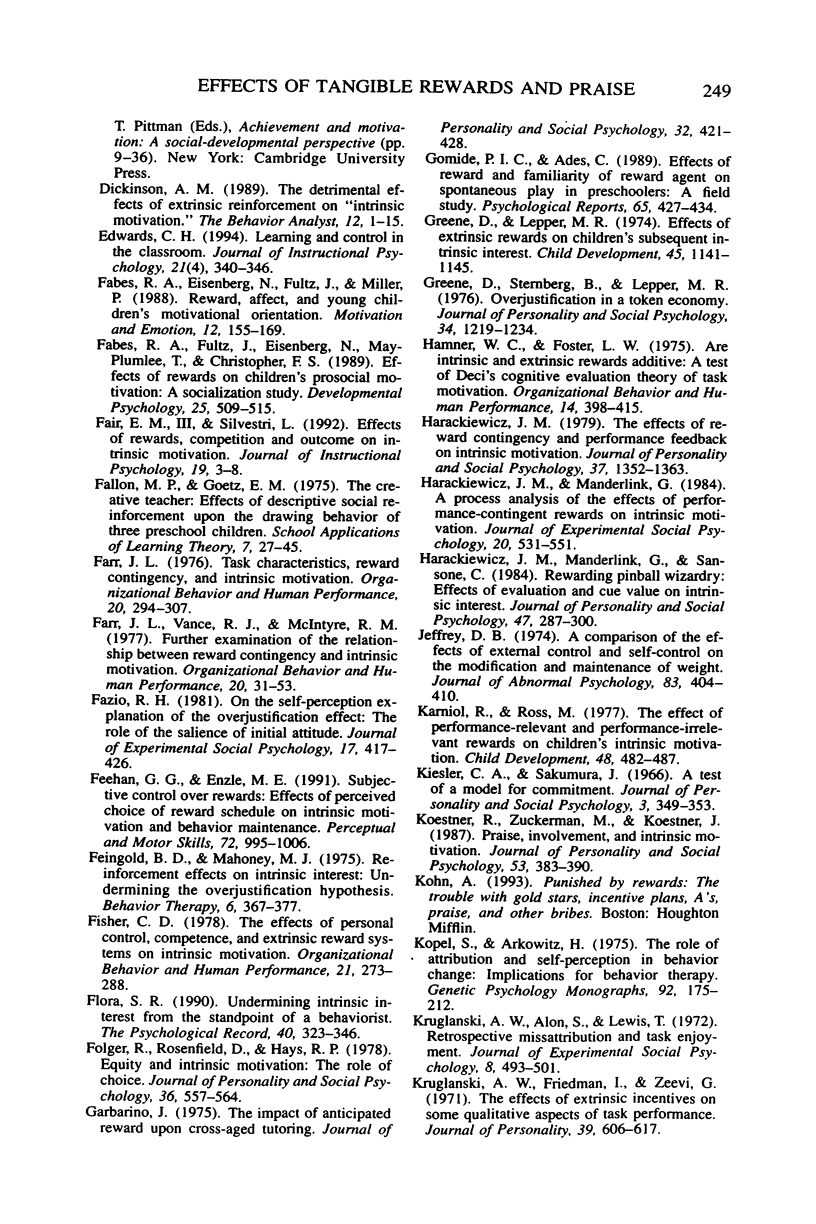
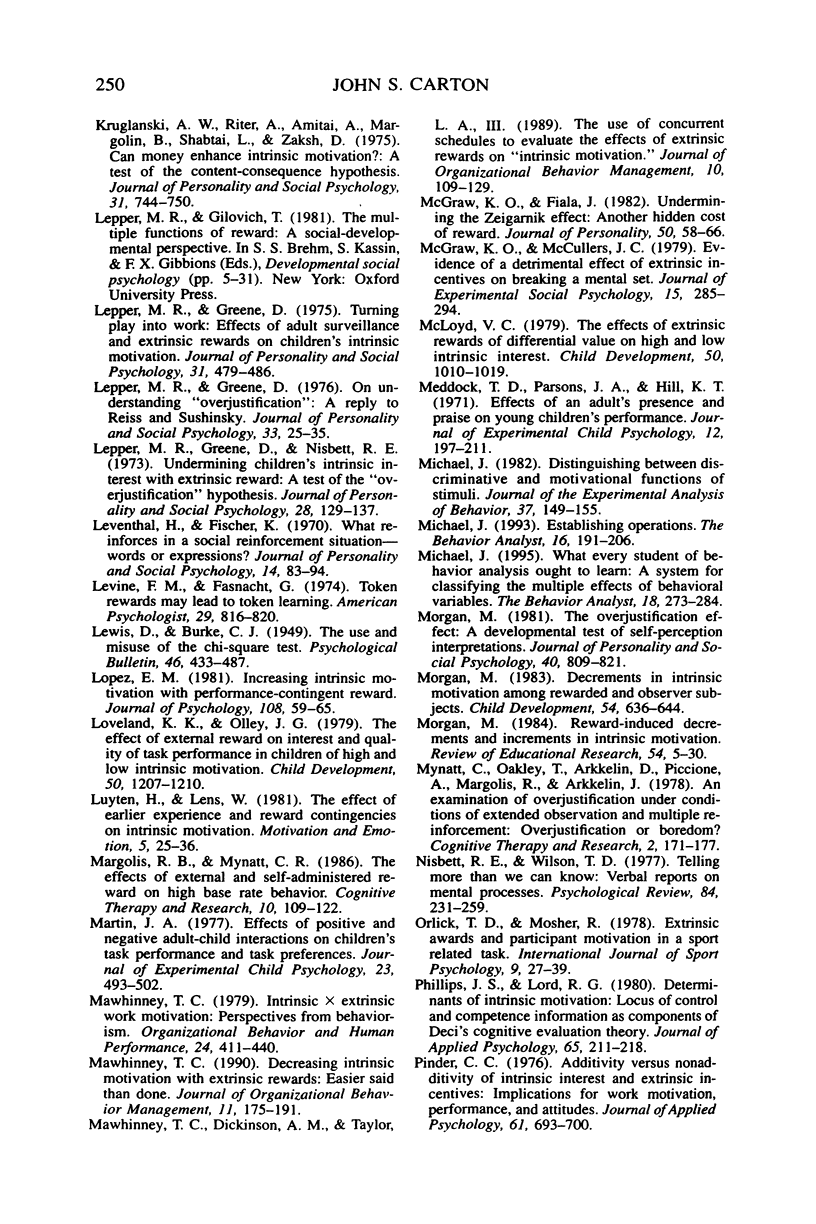
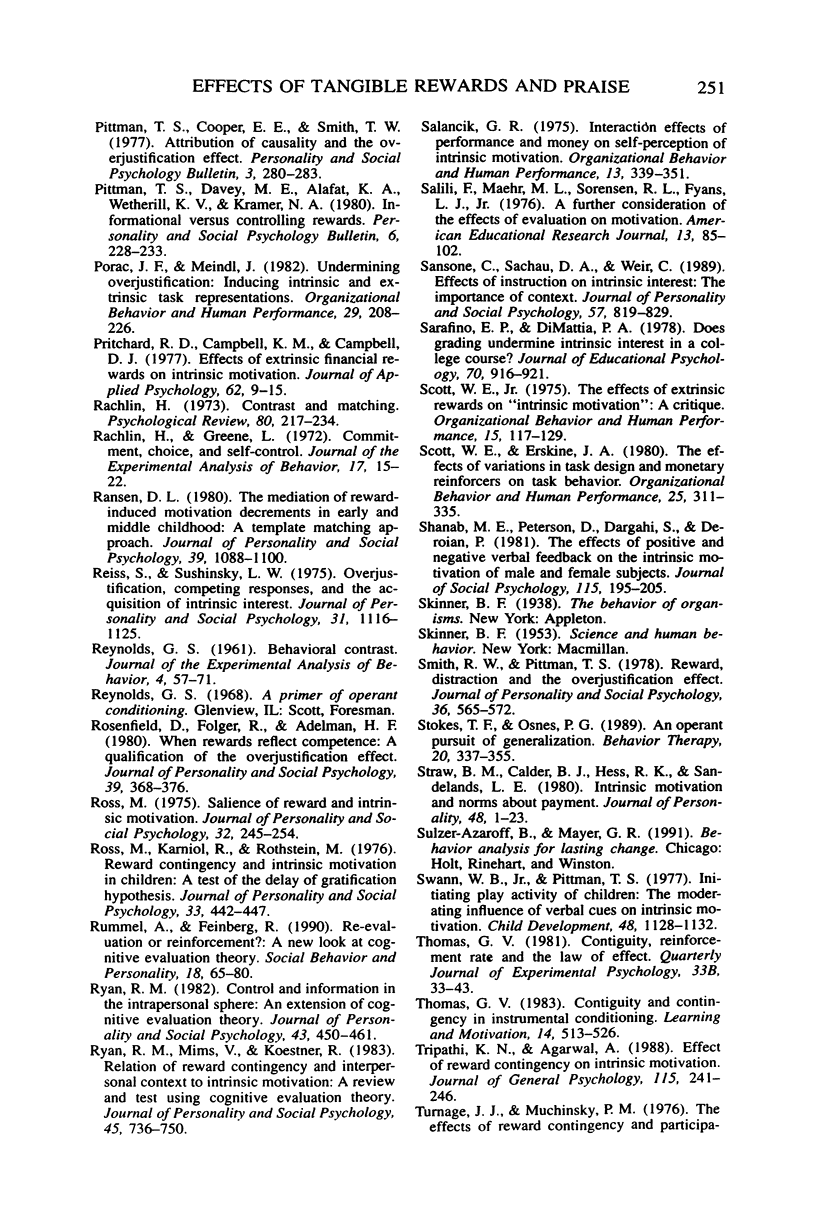
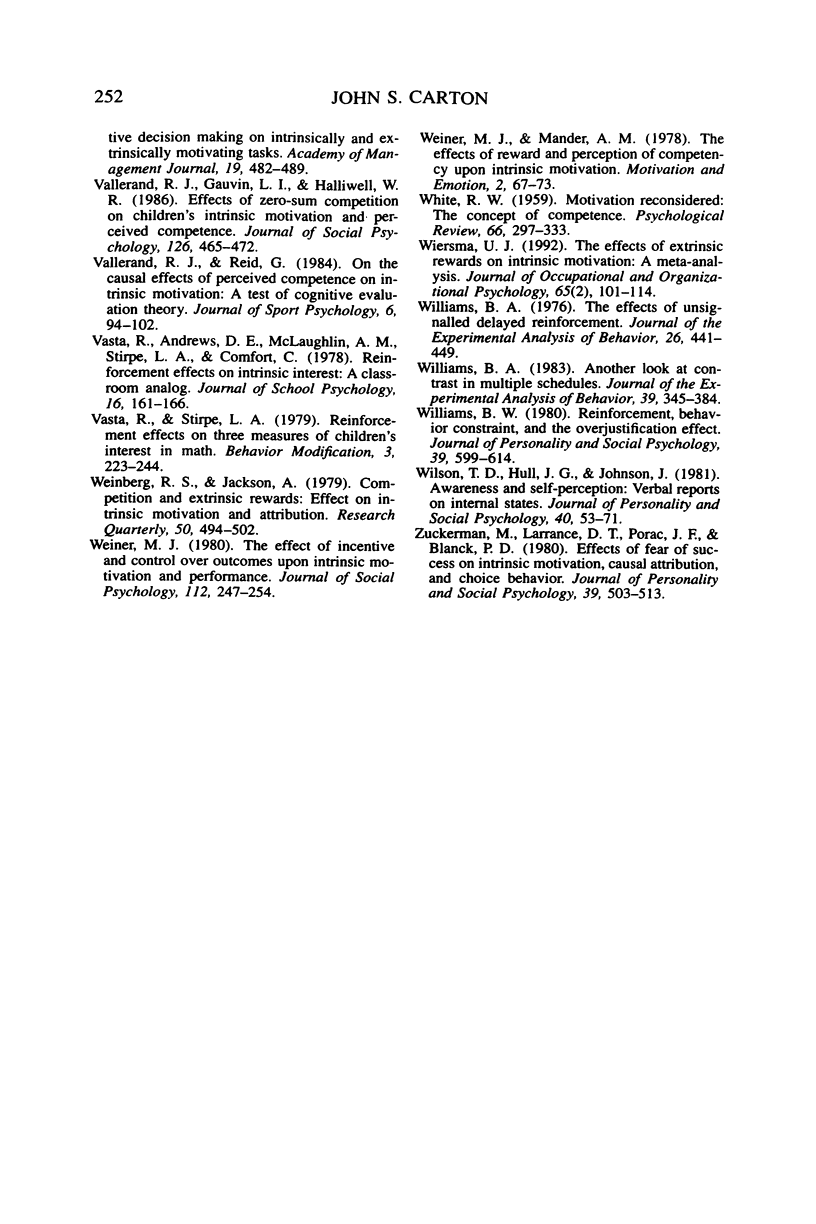
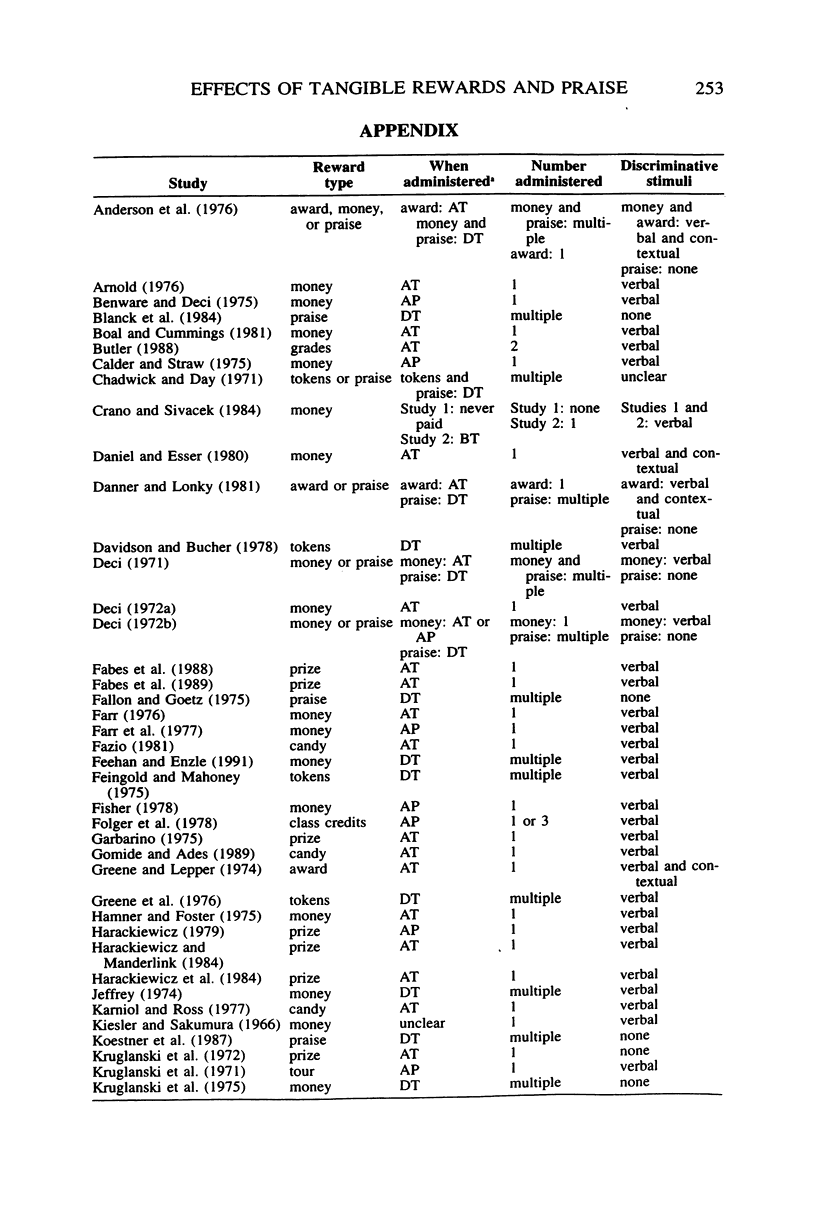
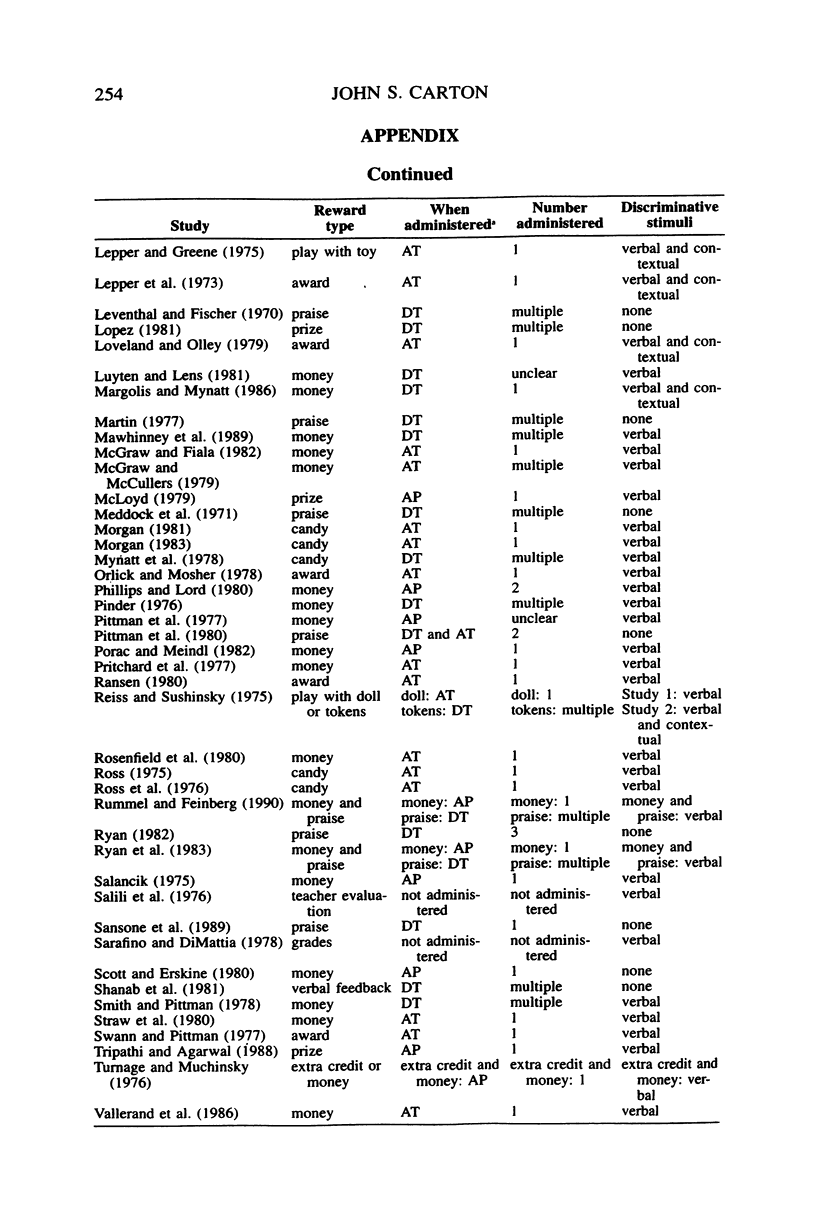
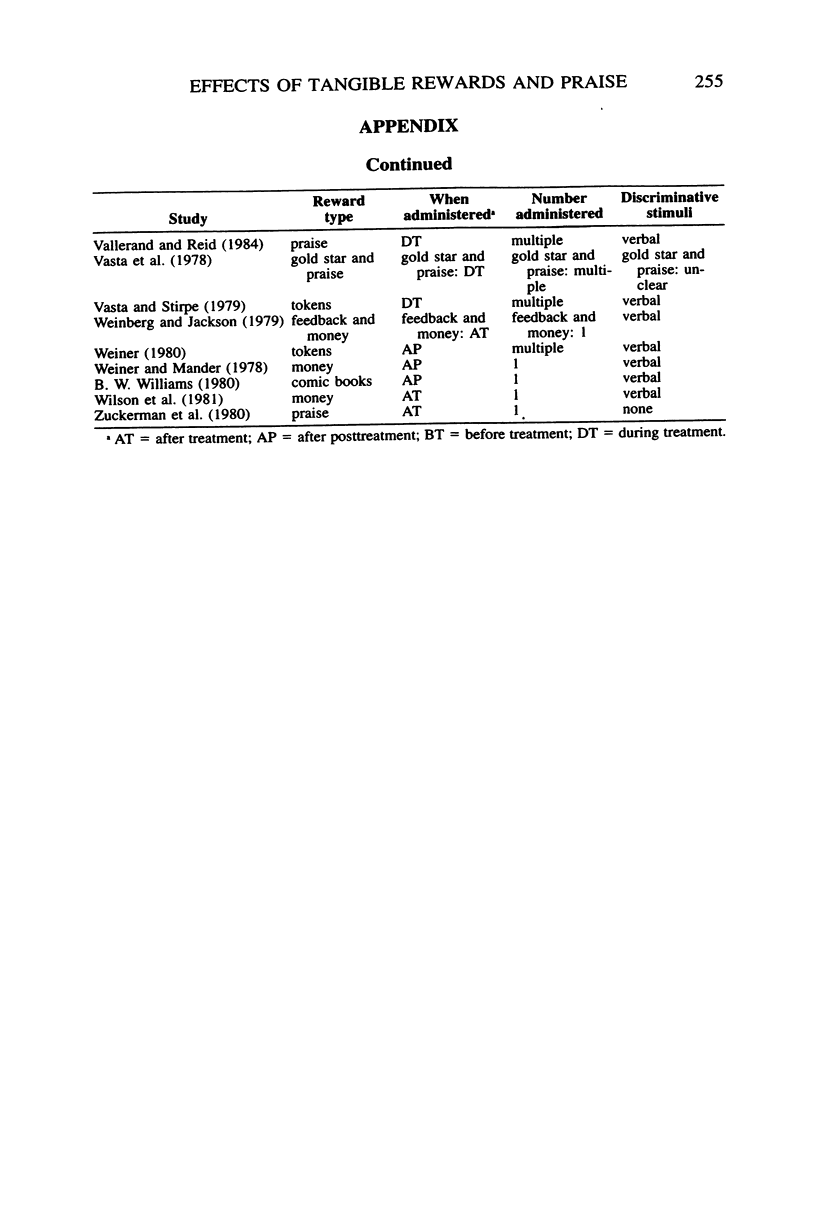
Selected References
These references are in PubMed. This may not be the complete list of references from this article.
- Calder B. J., Staw B. M. Self-perception of intrinsic and extrinsic motivation. J Pers Soc Psychol. 1975 Apr;31(4):599–605. doi: 10.1037/h0077100. [DOI] [PubMed] [Google Scholar]
- Chadwick B. A., Day R. C. Systematic reinforcement: academic performance of underachieving students. J Appl Behav Anal. 1971 Winter;4(4):311–319. doi: 10.1901/jaba.1971.4-311. [DOI] [PMC free article] [PubMed] [Google Scholar]
- Deci E. L., Ryan R. M. The support of autonomy and the control of behavior. J Pers Soc Psychol. 1987 Dec;53(6):1024–1037. doi: 10.1037//0022-3514.53.6.1024. [DOI] [PubMed] [Google Scholar]
- Dickinson A. M. The detrimental effects of extrinsic reinforcement on "Intrinsic motivation". Behav Anal. 1989 Spring;12(1):1–15. doi: 10.1007/BF03392473. [DOI] [PMC free article] [PubMed] [Google Scholar]
- Gomide P. I., Ades C. Effects of reward and familiarity of reward agent on spontaneous play in preschoolers: a field study. Psychol Rep. 1989 Oct;65(2):427–434. doi: 10.2466/pr0.1989.65.2.427. [DOI] [PubMed] [Google Scholar]
- Greene D., Lepper M. R. Effects of extrinsic rewards on children's subsequent intrinsic interest. Child Dev. 1974 Dec;45(4):1141–1145. [PubMed] [Google Scholar]
- Jeffrey D. B. A comparison of the effects of external control and self-control on the modification and maintenance of weight. J Abnorm Psychol. 1974 Aug;83(4):404–410. doi: 10.1037/h0036924. [DOI] [PubMed] [Google Scholar]
- Kiesler C. A., Sakumura J. A test of a model for commitment. J Pers Soc Psychol. 1966 Mar;3(3):349–353. doi: 10.1037/h0022943. [DOI] [PubMed] [Google Scholar]
- Kopel S., Arkowitz H. The role of attribution and self-perception in behavior change: implications for behavior therapy. Genet Psychol Monogr. 1975 Nov;92(SECOND):175–212. [PubMed] [Google Scholar]
- LEWIS D., BURKE C. J. The use and misuse of the chi-square test. Psychol Bull. 1949 Nov;46(6):433–489. doi: 10.1037/h0059088. [DOI] [PubMed] [Google Scholar]
- Michael J. Distinguishing between discriminative and motivational functions of stimuli. J Exp Anal Behav. 1982 Jan;37(1):149–155. doi: 10.1901/jeab.1982.37-149. [DOI] [PMC free article] [PubMed] [Google Scholar]
- Michael J. Establishing operations. Behav Anal. 1993 Fall;16(2):191–206. doi: 10.1007/BF03392623. [DOI] [PMC free article] [PubMed] [Google Scholar]
- Michael J. What every student of behavior analysis ought to learn: a system for classifying the multiple effects of behavioral variables. Behav Anal. 1995 Fall;18(2):273–284. doi: 10.1007/BF03392714. [DOI] [PMC free article] [PubMed] [Google Scholar]
- ONTKO J. A., PHILLIPS P. H. Reproduction and lactation studies with bitches fed semipurified diets. J Nutr. 1958 Jun 10;65(2):211–218. doi: 10.1093/jn/65.2.211. [DOI] [PubMed] [Google Scholar]
- doi: 10.1901/jeab.1990.54-323. [DOI] [PMC free article] [Google Scholar]
- REYNOLDS G. S. Behavioral contrast. J Exp Anal Behav. 1961 Jan;4:57–71. doi: 10.1901/jeab.1961.4-57. [DOI] [PMC free article] [PubMed] [Google Scholar]
- Rachlin H., Green L. Commitment, choice and self-control. J Exp Anal Behav. 1972 Jan;17(1):15–22. doi: 10.1901/jeab.1972.17-15. [DOI] [PMC free article] [PubMed] [Google Scholar]
- Ranney D. F., Steinberg A. D. Differences in the age-dependent release of a low molecular weight suppressor (LMWS) and stimulators by normal and nzb/w lymphoid organs. J Immunol. 1976 Oct;117(4):1219–1225. [PubMed] [Google Scholar]
- Sansone C., Sachau D. A., Weir C. Effects of instruction on intrinsic interest: the importance of context. J Pers Soc Psychol. 1989 Nov;57(5):819–829. doi: 10.1037//0022-3514.57.5.819. [DOI] [PubMed] [Google Scholar]
- WHITE R. W. Motivation reconsidered: the concept of competence. Psychol Rev. 1959 Sep;66:297–333. doi: 10.1037/h0040934. [DOI] [PubMed] [Google Scholar]
- Weinberg R. S., Jackson A. Competition and extrinsic rewards: effect on intrinsic motivation and attribution. Res Q. 1979 Oct;50(3):494–502. [PubMed] [Google Scholar]
- Williams B. A. Another look at contrast in multiple schedules. J Exp Anal Behav. 1983 Mar;39(2):345–384. doi: 10.1901/jeab.1983.39-345. [DOI] [PMC free article] [PubMed] [Google Scholar]
- Williams B. A. The effects of unsignalled delayed reinforcement. J Exp Anal Behav. 1976 Nov;26(3):441–449. doi: 10.1901/jeab.1976.26-441. [DOI] [PMC free article] [PubMed] [Google Scholar]


